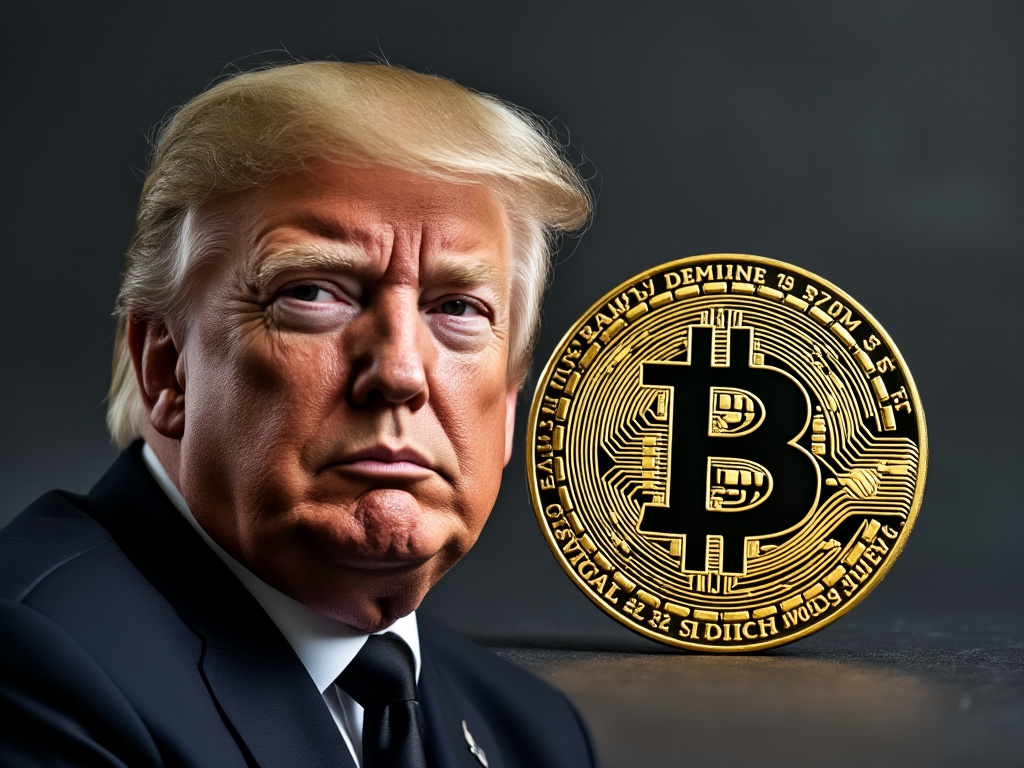The removal of Gensler as head of the SEC is already a task that can be considered completed.
Some objectives will take considerable time due to the complexity of the regulatory processes.
As Donald Trump’s January 20 inauguration date for his second term approaches, the Bitcoin community is closely watching which of his promises about the digital currency will be addressed first. Among the 10 commitments made by the Republican during his campaign, two seem to be the most feasible to be implemented in the short term.
During his campaign he focused on positioning himself as the ideal candidate for the growth of bitcoin and digital assets. And he assured that his country must become fertile ground for the industry, including in his speeches a fervent defense of this technology, gaining followers among bitcoin investors and key figures in the cryptocurrency industry in the United States.
During his campaign, Trump committed to the following:
Priorities
- Free Ross Ulbricht: He promised to grant freedom to Ross Ulbricht, the founder of Silk Road. The promise to pardon or commute Ulbricht’s sentence has the potential to be one of Trump’s first executive actions.
- Firing Gary Gensler: He announced his intention to remove Gary Gensler, the current chairman of the SEC, known for his regulatory approach to cryptocurrencies. This is a step that has already been taken, with the resignation of Gensler and the appointment of Atkins, known for his favorable stance towards cryptocurrencies. The change could usher in a friendlier era for the cryptocurrency sector in terms of regulation.
- An Advisory Council for Cryptocurrencies: It plans to create an advisory board to develop clearer and more beneficial regulatory policies for the cryptocurrency sector. With Bo Hines as CEO and David Sacks as “cryptocurrency czar,” this council is already taking shape, aiming to develop clearer and more beneficial policies. This is a move that can be implemented quickly without extensive legislative action.
Pledges that could span the second year or more
- Favorable regulation: He proposed modifying current policies that he says are forcing cryptocurrency companies to leave the United States. This commitment involves deeper legislative or regulatory changes, which will require time and discussions with Congress and government agencies.
- Elimination of anti-bitcoin policies: Committed to reversing policies implemented by the Biden administration that it considers harmful to cryptocurrencies, which will surely need a good amount of time to make adjustments in the regulatory reconfiguration.
- Defend the right to self-custody of bitcoin: Advocated for the right of the approximately 50 million bitcoin holders in the United States to keep their funds in bitcoin and other cryptocurrencies in their own custody. And although these promises may be announced as official policies, their practical implementation could face legal and regulatory challenges, positioning them for medium-term development.
- Ban the launch of a CBDC: Firmly stated that he would never allow the issuance of a central bank digital currency (CBDC) in the United States. In any case, prohibiting the issuance of a CBDC would require legislative action, that is, a law that specifically prohibits or restricts the creation of such a currency. This would involve drafting, proposing and passing a law through the United States Congress, which can be a long and complex process, especially if there is political opposition or competing interests.
- Boost to Bitcoin mining: Promised to encourage Bitcoin mining within the United States. This initiative requires specific infrastructure and policies that could be part of a long-term plan.
- A Strategic Bitcoin Reserve: Proposed establishing a national strategic reserve of Bitcoin, including cryptocurrencies confiscated by the government. Creating a strategic Bitcoin reserve would require new legislation. Proposing, debating and approving a specific law that allows and regulates the creation of said reserve would involve a long process in Congress. Although there is also the possibility that Trump creates this treasure in bitcoin by express means or by executive order.
- Turning the US into the crypto capital of the world: He pledged to make the United States the leading world power in the cryptocurrency space. This is a broad goal that encompasses multiple policies and actions, many of which depend on how previous promises are executed. It is a vision that can be developed throughout your mandate.
Freeing Ross Ulbrich, a key task for Trump
A promise with immediate implications, although of a different nature, is the potential release of Ross Ulbricht, founder of Silk Road, through a pardon or commutation of sentence. Trump could act unilaterally to fulfill this commitment.
As president, Trump could exercise his constitutional authority to commute Ulbricht’s sentence, allowing his immediate release or grant a full pardon that erases the conviction from your record. This process would culminate with the signing of a presidential decree, which would be communicated to the Federal Bureau of Prisons to begin release procedures. The action would be announced publicly from the first day of government.
Ulbricht was sentenced in 2015 to two life sentences plus 40 years in prisonwithout the possibility of parole. That was the punishment imposed on him for creating a black market on the darknet that allowed free trade with bitcoin, without any state interference.
His pardon will likely generate controversy, generating significant public and political debate, but Ulbrich’s release would have a significant impact on the bitcoin community and market. It is an act that could be seen as a sign of government support for the philosophy of decentralization and financial freedom that Satoshi Nakamoto’s creation defends. It could also boost investor confidence and inject momentum into the price of bitcoin.
If investors and users interpret Ulbricht’s release as a sign that more favorable policies for the industry will definitely be worked on, a rally in digital asset market prices will likely be triggered.
Ulbricht is seen by many in the community as a symbol of the fight against government regulations and censorship. Its release could boost morale and reaffirm cypherpunk ideology and libertarianism that many people share in the Bitcoin community, possibly attracting more supporters to give further momentum to adoption.
The move could also reignite debate over how cryptocurrencies should be regulated. While some would see this as a step towards lighter or more favorable regulation, others might worry about legal precedents and the normalization of darknet-related activities affecting how legislation is legislated in the future.
Some of these promises have made the path easier for Trump just before his inauguration. An example is the resignation of Gary Gensler as chairman of the United States Securities and Exchange Commission (SEC), something that the cryptocurrency industry had clamored for. Many They considered Gensler an adversary of the digital asset sectorprimarily because, under his leadership, the SEC unleashed a series of lawsuits against multiple companies within the Bitcoin ecosystem.
Replacing Gensler, Trump appointed Paul Atkins, a cryptocurrency advocate, as the new head of the SEC, thus allowing that promise to be crossed off the new US president’s list of commitments.
Another promise that has been taking shape is the creation of an Advisory Council in charge of design transparent regulatory policies for the cryptocurrency sector. The sign that this project is underway was revealed by CriptoNoticias in November, when it was learned that representatives of several companies in the sector, including Ripple, Kraken and Circle, were competing to secure a seat on this council.
Likewise, Trump decided who will be the director of the Cryptocurrency Advisory Council. He said that former college football player Bo Hines will be the executive director of the advisory group, which will be chaired by the so-called “cryptocurrency czar,” David Sacks.
And while Trump has talked about broader changes, such as making the US the crypto capital of the world, promoting Bitcoin mining, advocating for the right to self-custody, and creating a strategic Bitcoin reserve, these goals would take time. considerable for its implementation due to the complexity of the regulatory and financial processes.
Regarding the creation of the bitcoin reserve, activist Dennis Porter predicted that it will be created during Trump’s first 100 days in the United States presidency and is convinced that on the first day a pardon will be decreed for Ross Ulbricht.






Leave a Reply